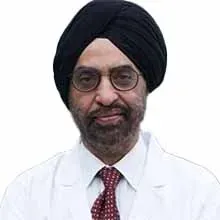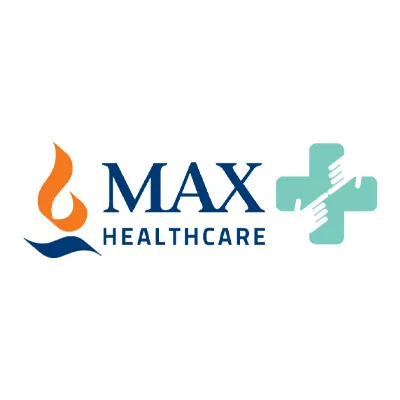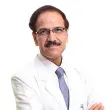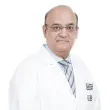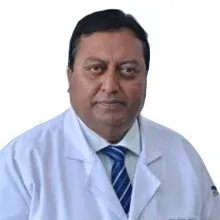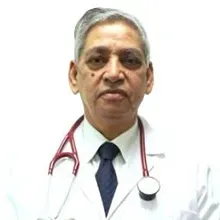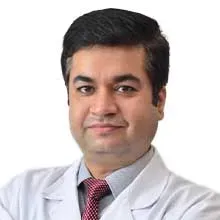About Doctor DR. BALBIR SINGH
About
Dr. Balbir Singh is one of the most sought-after cardiologists, both domestically and globally. Dr. Singh has been in the active profession for more than 36 years and has pioneered various novel
invasive cardiac methods. He is an expert in heart failure treatment devices, radiofrequency ablation for arrhythmias, pacemakers, and coronary angioplasty. He has received numerous national and international honors, including the coveted Padma Shri award. For his contribution to the Indian Electrophysiology Journal, he was listed in the "LIMCA" Book of Records. He graduated from the esteemed Maulana Azad Medical College with both an MBBS and an MD. He then went on to do his DM in cardiology at GB Pant Hospital. Additionally, Dr. Singh has a Fellowship in Cardiac Electrophysiology from the American College of Cardiology in Milwaukee. He is a member of the advisory councils of various famous international organizations.
Work Experience
36 Year of Experience
Dr. Balbir Singh is an esteemed and well-known cardiologist both domestically and abroad. He has won several national and international honors, including the coveted Padma Shri award. He developed a number of novel invasive cardiology methods, and he serves as a faculty member at all significant European and American conferences. He also participated on the advisory boards of several international societies. He has produced several chapters for books and periodicals, and he is a fellow of the American College of Cardiology. His drive to innovate and explore new boundaries in science for the benefit of the human race is just as important to him as his dedication to his patients and the field of cardiology. Following are his current working experiences:
Associate Professor at Department of Cardiology at AIIMS, New Delhi
Director at Escorts Heart Institute & Research Centre, New Delhi
Associated with Hospitals
-
Max super-specialty hospital, New delhi
-
Fortis Hospital, Bangalore (Bannerghatta Road)
List of Treatments
-
ECG-Treadmill Test TMT: A cardiac stress test, or treadmill test, is a cardiology test that assesses the heart's capacity to react to external stress in the context of clinical practice. This is the most basic and easy evaluation of functional response of heart to physical strain. It involves the regular monitoring of the patient's blood pressure and cardiac rates by using an exercise protocol, a treadmill, or a bicycle.
-
Cardiac OPD Procedures: Cardiac OPD operations are those that are conducted on a regular schedule and do not require hospital admission. History taking, examination, blood tests, the electrocardiogram, event evaluation, cardiac stress testing, electrophysiological studies, and other procedures are conducted in the cardiac OPD.
-
Coronary Revascularization Surgery: Coronary revascularization is a group of treatments or procedures that restore blood flow to areas of the heart that aren't getting enough blood to meet their needs. Rather than open-heart surgery, the surgeon attaches (grafts) a healthy vessel (often taken from the leg) to the diseased or narrowed heart vessel. After that, blood "bypasses" the sick spot and goes through the new channel.
-
TAVI (Transcatheter Aortic Valve Implantation): Transcatheter aortic valve implantation is a procedure for replacing an aortic valve that doesn't open entirely. It enhances blood flow in the heart. In order to access the aortic valve in the heart, a catheter is inserted into a blood vessel in the patient's upper leg or chest.
-
Minimal Invasive Cardiac Surgery: It is a surgical procedure in which instead of cutting through the breastbone as in open-heart surgery, minimally invasive cardiac surgery entails making tiny incisions on the right side of the chest to reach the heart between the ribs. A number of cardiac problems can be treated with minimally invasive heart surgery.
-
ECMO: Extracorporeal membrane oxygenation (ECMO) is a sort of mechanical life support that can assist a person whose lungs and heart aren't working properly. ECMO constantly removes blood from the body and routes it through devices that provide oxygen and eliminate carbon dioxide.
-
Heart Transplant: A heart transplant is a procedure that replaces a failing heart with a healthy donor heart. Heart transplantation is often reserved for patients whose health has not improved sufficiently with medicines or other surgical procedures. While a heart transplant is a significant surgery, with proper follow-up treatment, your chances of survival are strong.
-
Aortic Aneurysm Surgery: Depending on the location of the ruptured vessel, the surgeon in this surgery first creates a big cut in the stomach or chest. The blood vessel is then eliminated, and the transplant is stitched in its place. This transplant is often a leak-proof polyester tube. The recovery time for open surgical repair is around one month.
-
VAD: A ventricular assist device (VAD) is a device that assists in the pumping of blood from the heart's lower chambers to the rest of the body. It is used to treat a weak heart or heart failure. A VAD may be used to assist the heart while alternative therapies, such as a heart transplant, are being considered.
-
Electrophysiology: An electrophysiology (EP) examination is a test used to identify irregular heartbeats or arrhythmias. It evaluates the electrical system or activity of the patient’s heart. Catheters are inserted into blood vessels that enter the heart, and after that, wire electrodes, which measure the flow of electric activity, are inserted.
Awards and Recognitions
-
Received recognition in the Limca Book of Records for Editorial Services in Indian Electrophysiology Journal, 2007
-
Invited for V.V.Shah Oration in Cardiological Society of India, 2006
-
Medical Excellence Award (International Study Circle), in recognition of the work in Interventional cardiology, 2002
-
B D Kumar Oration (Indian Medical Association) for achievements in field of Interventional Cardiology, 1996
-
Awarded with the highest civilian award, PADMASHREE” (2007
-
Recognition Award for achievements in the field of Intervention Cardiology (Bard Inc.)
-
B D Kumar Oration (Indian Medical Association) in March 1996 for achievements in field of Interventional cardiology
-
Won the Best Young Investigator Award (Cardiology Society of India) in August 1995 for Research Work in Interventional cardiology.
Education and Training
-
MBBS, G. G B Pant Hospital, Moulana Azad Medical College, New Delhi, 1983
-
MD, Medicine, G. G B Pant Hospital, Moulana Azad Medical College, New Delhi, 1987
-
DM: Cardiology, G. B. Pant University of Agriculture and Technology, 1991
-
MNAMS: General Surgery, National Academy of Medical Sciences (India), 2005
Trainings/Specializations
Membership
Registrations
Specialty Interests
 Associated with hospitals
Associated with hospitals
Envisioning the goals & paving the path to success for the organization.
Book Appoinment
Similar Doctors In New Delhi
Envisioning the goals & paving the path to success for the organization.










